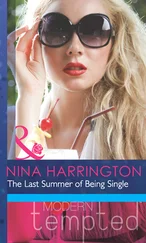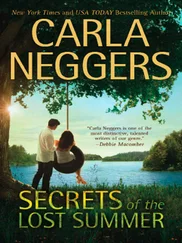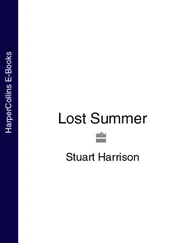“Ah, sí, lo entiendo,” Gomez said. He turned to Rhoda. “How do you do?” he said. “I am Aníbal Gomez.”
“How do you do?” Rhoda said shyly.
“But your eyes are not blue,” he said.
“She used my eyes,” Sandy said quickly.
“Oh.”
“Yes, I’m sorry,” Rhoda said.
“That is all right,” Gomez said. He looked her over carefully. He still seemed on the edge of panic. Every thought flashing through his mind appeared instantly on his face, as though he were incapable of the slightest subterfuge. His eyes behind their magnifying lenses, his sensitive mouth, even his nostrils expressed doubt, and then suspicion, and then further confusion, and finally resignation. He had come all the way from Manhattan, his look clearly stated (he would have made a terrible spy), and for better or worse he would see this thing through, not with Sandy, it seemed, but with Rhoda instead, who claimed to have filled out the questionnaire, and who certainly appeared to be somewhere between nineteen and twenty with dark black hair, as she had claimed, but not with blue eyes, well, he would have to forego the blue eyes (all of this appearing in sequence on his face, he was about as inscrutable as a sparrow), and certainly of ample build, as she had promised, with very large tetas like Puerto Rican girls, and truly about five feet four inches tall, though she did not appear at all Oriental, but perhaps the Jewish part of her ancestry had dominated the Eastern influence, well, he would have to make the best of it. And then his transparent system of telegraphy flashed fresh puzzlement into his eyes and onto his mouth and caused his nostrils to twitch again, and we could clearly read his new concern: Who Are These Two Boys With Her?
“These are friends of yours?” he asked.
“Yes. They’re with Sandy,” Rhoda said.
“They’re with me,” Sandy said.
“Ahh,” Gomez said. They seem very young for her, his face telegraphed, but perhaps there is a shortage of available men on the island. “Well,” he said, “are we to be together?”
“I thought it might be nice,” Rhoda said.
“Ahhh,” he said, and his mouth turned slightly downward, and his eyes grew sad behind their spectacles, and he sniffed. “Ahh, well, if you wish,” he said.
The first thing David and I did was go to the drugstore. It was painless. David asked for a tube of hair cream and a dozen prophylactics (which I thought excessively ambitious), and then we went outside to where Gomez was waiting with the girls, and David made a joke about greasy kid stuff, which Gomez didn’t get. I was finding it more and more difficult to keep from putting him on, even though we’d promised Rhoda. He had no sense of humor, not the tiniest shred. His initial surprise and confusion had given way to an amiable submissiveness; he was willing to let us call the shots, and meekly followed us through the town, waiting outside the drugstore at our suggestion, accepting the idea of window-shopping before dinner, approving our choice of a restaurant and even, once we were seated, supplying coins for the juke box selections we made.
The restaurant, one of the least objectionable in town, was on a side street across the way from Wool-worth’s, its decor consisting largely of red leatherette booths and checked tablecloths. But it was clean and American, meaning it served a bland cuisine designed to offend no one. Gomez suggested we have a cocktail before dinner, but since we were all underage and didn’t need the embarrassment of being asked for identification, we all came up with various excuses which he accepted without question. Rhoda said she didn’t drink, which was the truth. Sandy said she didn’t feel like one right now, perhaps a brandy after the meal. David and I said we had each had two doubles before leaving the island, and didn’t want to chance another. But we all urged Gomez to have one if he wished, and he ordered a scotch and water, and then lifted the drink when it came and said, “ Salud , Rosa.”
“It’s Rhoda,” she said.
“Rhoda? Ahhh, Rho da . Ahhh, ahhh,” Gomez said and drank.
There was something terribly old-world about Gomez, something that spoke gently of haciendas and guitars, mantillas and black lace fans, soft Mediterranean breezes. The truth of the matter, however, (as he revealed it in an autobiographical monologue directed chiefly at Rhoda, catching us only tangentially as it were, but almost putting us to sleep nonetheless) was that he was born and raised in a Puerto Rican village named Las Croabas, thirty-six miles from San Juan, where his father was a poor-but-honest (ho-hum) fisherman except during the cane season when he took to the fields. Aníbal (it was a difficult name to pronounce, so we immediately bastardized it to Anna-belle) had lived in a wooden shack near the beach, and his only American contact had been with adventurous tourists who drove up from San Juan and rented his father’s boat for snorkeling expeditions. He had usually accompanied his father on these trips, taking the divers out to Cayo Lobos some three and a half miles offshore, and then watching the tall, elegant, rich people frolic in the water while the boat drifted and he ate his noonday meal of cheese and bread. Seven years ago, he had come from Puerto Rico to live with an aunt in Spanish Harlem. His father had by that time taken a job as a beachboy at the Caribe, and was earning more money than he’d ever earned from his combined fishing and cane cutting activities.
“Anything by The Stones there?” Sandy asked David.
“I don’t see anything,” David said. “Here’s a new Blues Project, though.”
“Oh, good, play it,” she said. “Do you mind, Annabelle?”
“No, not at all,” he answered, “but it is Aníbal . The accent is on the second syllable, Ah -nee- bal, do you see? not Annabelle. Annabelle is a girl’s name, no?”
Well, he went on to say, he was still living in Spanish Harlem, where he had managed to avoid the evil of narcotics addiction (those were his exact words) and where he worked during the day at a liquor store that had been at the same location for twenty-three years, while meantime studying accounting (we knew it!) at Columbia University three nights a week.
“You want to be an accountant, is that it?” Sandy said.
“Yes, of course,” Aníbal said, and smiled.
“Why don’t you have another drink, Annabelle?” David said.
“If no one minds.”
“No, go right ahead.”
“But it is Aníbal,” he said, and again smiled.
“ Ah- nee-bal,” Sandy said, misplacing the accent.
“No, no,” Aníbal said, laughing, “you make it sound like ‘animal.’ No, no, it is Ah -nee- bal.”
“Well,” Sandy said, and shrugged, and smiled.
“It is difficult, I know,” Aníbal said, and then ordered another scotch and water.
He then asked Rhoda about the masters degree Sandy had concocted for the questionnaire. Rhoda was supposed to be twenty years old, of course, which made a masters virtually impossible unless she had graduated from college at the age of eighteen or thereabouts, which age she wasn’t about to reach for another three years. Trapped in Sandy’s original lie, Rhoda blushed and said, “Oh, yes, that, ” and glanced at Sandy, who immediately said, “She’s very shy. Her masters is in sociology.”
“Ahh, yes?” Aníbal said, and it was my guess he didn’t know what sociology meant. His fresh drink arrived. He raised the glass, again said “Salud” to Rhoda, including us in a retrospective nod, and drank. It was then, I think, that we decided to get him drunk.
I don’t know whose idea it actually was. I only know that the notion was suddenly there, flashing between Sandy and David and me with the same electrical intimacy we had generated that night of the firehouse dance. Our eyes met. There was no need to nod, or smile, or offer acknowledgment of the idea in any way. It was simply there, we felt it taking shape and gaining power, it surged around and over the table, it was as if we had our arms around each other and could feel each other’s pulse beats: we would get Aníbal Gomez drunk.
Читать дальше
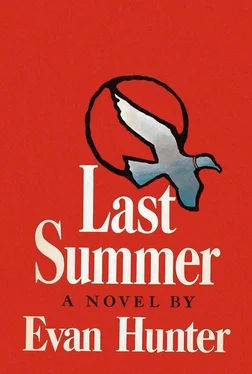
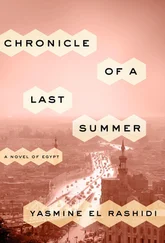
![Маргарет Миллар - Rose's Last Summer [= The Lively Corpse]](/books/384369/margaret-millar-rose-s-last-summer-the-lively-c-thumb.webp)



